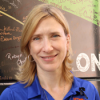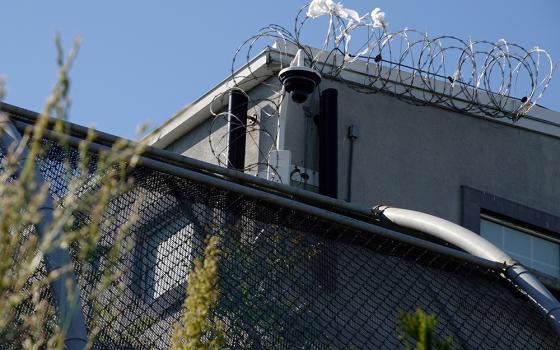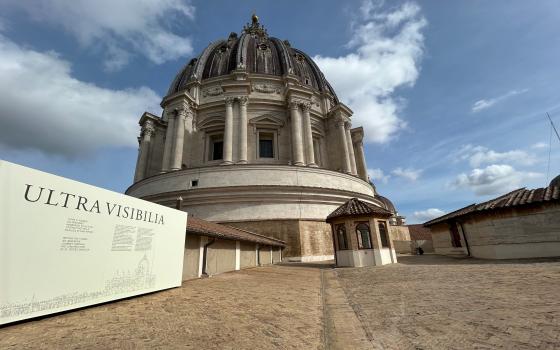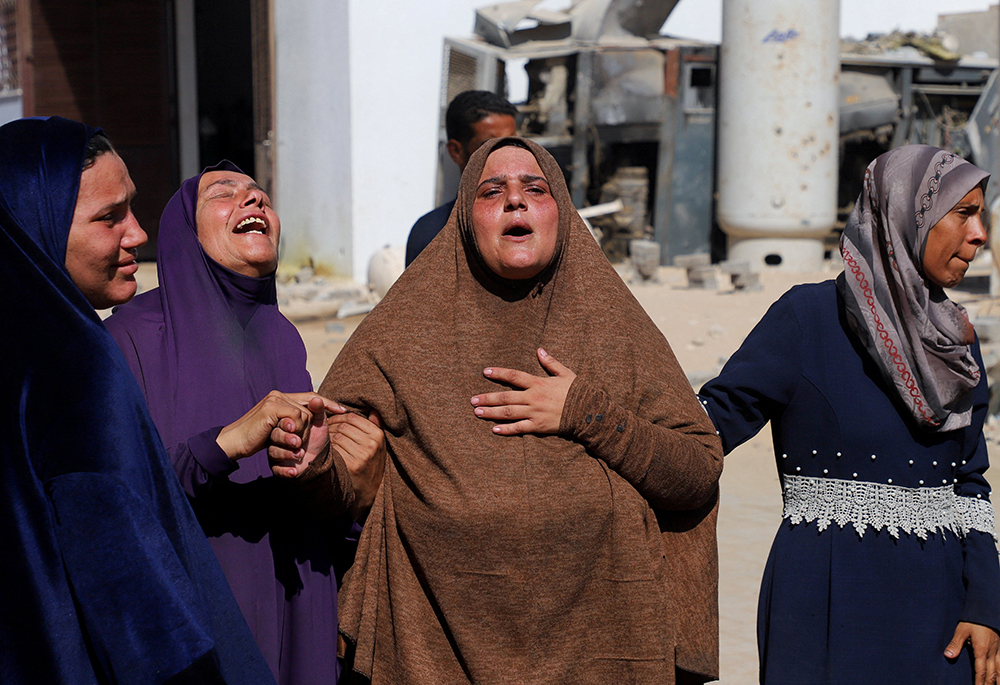
Mourners react during the funeral of Palestinians by Israeli fire who were reportedly trying to receive aid, according to medics, at Al-Shifa Hospital in Gaza City Sept. 11, 2025. (OSV News/Reuters/Ebrahim Hajjaj)
Military occupation, humanitarian assault, forced starvation, ethnic cleansing, crimes against humanity, "emptying the Strip," genocide … whatever it's called, it is happening right now in Gaza. One of my closest friends is a Palestinian from Gaza who is living in the Midwest United States.
I need to be honest with myself: I'm complacent. I don't do any more than anyone else. I'm not on any front lines. I'm not dragging water through the rubble of scorched terrain. As an American, I'm not even a fly in the ointment of any decision-makers. I sign petitions; I sometimes repost the most heartfelt pleas on social media — thank God for Ms. Rachel. I whisper prayers and weep quietly. None of it changes the fact that my friend's family is struggling to survive in Gaza.
What I do carry is pain, and shame wells up like acid in my throat. Disillusionment sits heavy, like a stone on my chest. The heartache sometimes makes it hard to breathe.
Refusing anesthesia is my only contribution. I hold on to this pain rather than numbing it away. I suffer with my friend in silence, rather than becoming one more American explaining policy. Nothing is gained through moral performance to polish my image of being "on the right side." What the world needs is for us to feel.
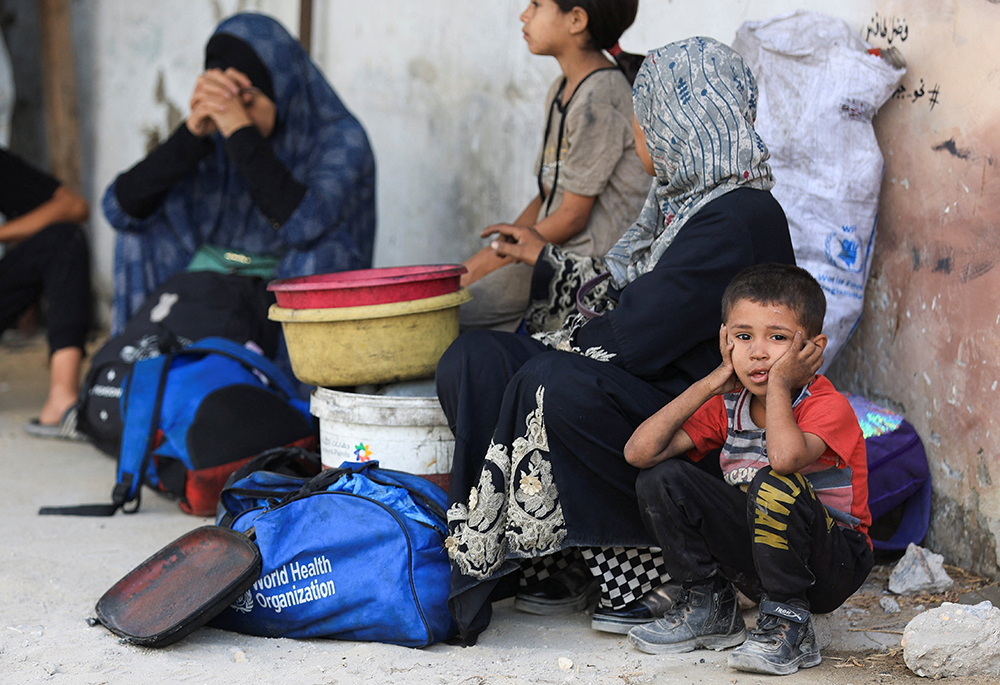
A child looks on as a displaced Palestinian family sits on the ground outside Al-Ahli Arab Hospital in Gaza City, Aug. 26, 2025, after fleeing deadly Israeli strikes. (OSV News/Reuters/Dawoud Abu Alkas)
Our complacency is not ignorance — it is anesthesia. We know enough. We have known for months, for years. We cannot claim ignorance like those in the 1940s when the horrors of the Holocaust unfolded. What makes us complacent today is not lack of information, but our refusal to let what we know become heartbreak. We resist feeling heartbreak in our bodies. We watch, we scroll, we sigh — and then we return to our daily comforts and concerns. But my friend cannot. She cannot sigh and carry on with her day. Her family cannot escape what is happening.
My friend and I communicate regularly. She is Muslim; I am Catholic. In our past conversations, we shared our faiths like fragile lanterns in the dark, pondering God's plan, comparing prayers and trading stories of hope, fear and discouragement. I tell her how my congregation of sisters prays for their survival and well-being — she knows the importance of prayer.
She keeps me updated about her family under siege. Her niece was born at home in 2024 during the military occupation and recently took her first steps. She still has both of her legs. My friend's 13-year-old cousin was killed in July. All her family is starving.
My friend and I only communicate by text these days. She says she feels like a different person and doesn't want to subject me to her "gloominess." I don't press her, because what would I say anyway?
Advertisement
Back in 2024, I encouraged her fundraising efforts and her GoFundMe page — all with the goal of repairing her parents' home when they returned to Jabalia. Their neighborhood no longer exists. Her mother and father have not seen each other in over a year.
We do not try to solve the unsolvable. We lean on what we know: that love, grief, and faith can stretch across borders, even blockades, and they are still alive.
I am not saving anyone. I cannot rescue my friend's family. I cannot undo an empire, but I can let their reality pierce mine. I can refuse to look away. I can carry pain as witness, as solidarity, as my small resistance against the machinery that feeds on our numbness.
I can refuse to look away. I can carry pain as witness, as solidarity, as my small resistance against the machinery that feeds on our numbness.
So, I want to ask you — what are you feeling right now? Not what you are thinking, nor what position you hold, but what is happening in your chest, your gut, your throat as you read these words? If you feel nothing, I invite you to pause. Notice how tempting it is to reach for distraction, to stay anesthetized.
If we cannot bear to feel, we cannot bear to change.
Gaza is not asking us for solutions. Gaza is asking us to stay awake. To let the grief, the rage, the helplessness break us open. To let the pain itself become a crack where something new might enter.
I carry heartache. I carry shame. I carry rage. And I offer them — not as solutions, but as witness.
What will you dare to carry?
